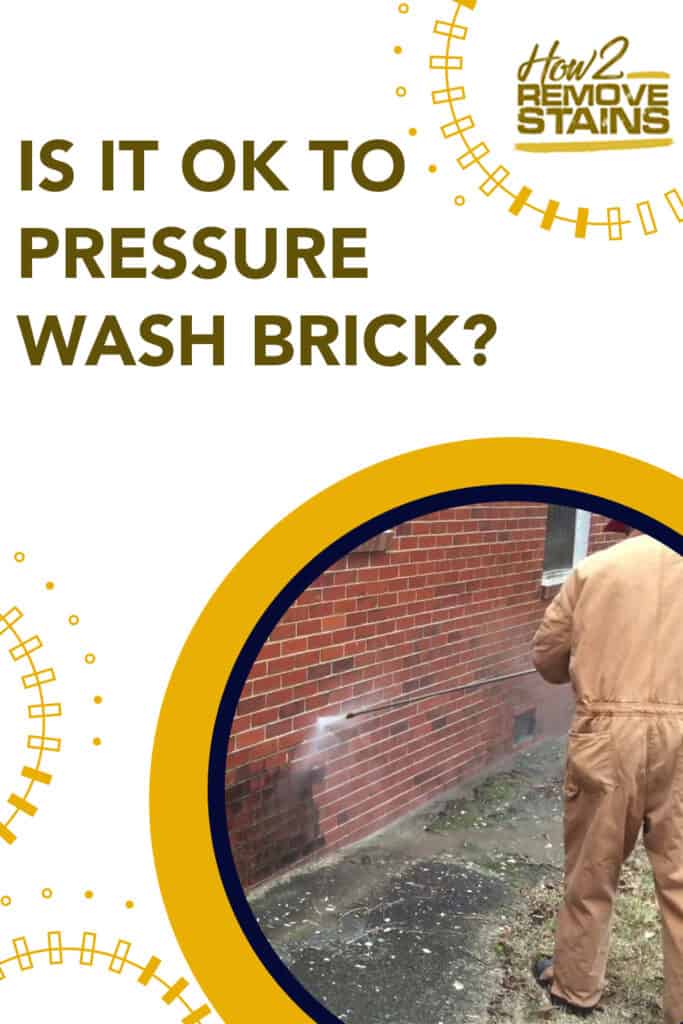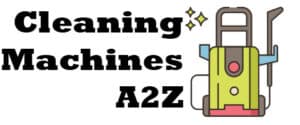When it comes to cleaning a house, most people will want to make sure that they are only cleaning away the surface grime, and not scraping off a layer of material during the cleaning process. It is important to know how much pressure some surfaces can handle, such as brick.
Is it OK to pressure wash brick?
Despite how durable and tough brick tends to be, you should never take a pressure washer to a brick surface. There are other ways to efficiently clean bricks without damaging the material, and there are other surfaces that can better take the brunt of a pressure washer.
Why Shouldn’t You Pressure Wash Bricks?
At first, you may be confused as to why you shouldn’t take a pressure washer to a brick surface. After all, bricks are known for being incredibly durable surfaces and are commonly used for building because of how durable they are. However, underneath that hard exterior, there are a plethora of reasons why you shouldn’t take a pressure washer to a brick surface.
For one, brick is a porous surface. This means that it is not waterproof and it will absorb any water that is put onto it, whether that is rain, snow, sleet, or the jet of a pressure washer. When brick surfaces absorb water, they might begin to break down inside. You will not notice this kind of damage at first, but it is still something that you should be wary of.
Make the bricks wet with a pressure washer and they’ll decay faster
Bricks that have absorbed considerably more water than they should have, such as brick surfaces that have been pressure-washed, are going to decay and crumble much faster than bricks that are well-maintained and kept dry. Again, this damage will not be immediately noticeable, but over the course of years, you will notice that any pressure-washed bricks are going to be decaying first.
This will mean that you will have to have new bricks put down more often, and depending on where these bricks are and if they are providing any structural support (a wall, rather than a brick patio), this can become very expensive, very fast. If you want to preserve the quality of your brick surfaces, you are going to want to make sure that you take the steps to clean them properly, and this means using just about anything other than a pressure washer to get the job done.
What if the brick has a protective sealant?
If you know for a fact that, because bricks are a porous surface, there was sealant applied to the bricks to keep them protected, you might think that this would mean that it is fine to pressure wash the bricks. However, this can pose even more trouble for your bricks if you try to pressure wash them when they have sealant on them.
A sealant’s coating tends to be durable enough to withstand heavy rain and snow, but it will not be strong enough to withstand the pressure that a pressure washer will exert onto it. A pressure washer will not only strip away any layer of grime or gunk on the bricks, but there is a very good chance that it will end up stripping away the sealant’s coating as well.
It can be hard to tell where a sealant’s coat begins and ends, which means that if you used a pressure washer to wash a sealed set of bricks, you may not know which bricks are now exposed to the elements and which are not. This will mean that you either have to strip the sealant off all the bricks and reapply, or you will have to guess and apply the sealant where you believe there to be openings, which will only mean that there is a risk of patches of brick getting severely water damaged because they were not properly sealed.
As you can tell, there is a lot of work that comes after pressure washing a brick surface. More often than not, it is going to be best for you to find alternative ways to clean off brick surfaces so that they can remain both clean and intact enough to withstand summer storms and winter snow.
More important info about pressure washers:
- The best way to maintain an electric pressure washer
- Is it OK to pressure wash block paving
- Is it OK to pressure wash my car
More questions about cleaning bricks and pressure washing
How Do You Clean a Brick Surface?
If you want to clean off a brick surface without stripping it of its protective coating and leaving it vulnerable to the elements, there are a few things that you can do. You can use specialized brick cleaners for your general cleaning needs, vinegar and water for large patches of stains, and baking soda for smaller and more localized stains on brick surfaces.
What About Low-Pressure Settings?
If you have a power washer that has much softer settings for washing, you may wonder if you can get away with using that. In general, you can rely on soft pressure washing as long as it doesn’t go over 1,500 PSI, which is the standard maximum that professional masonry cleaners will use. It is also better to have a weaker setting and to go over an area several times, than to use a high setting when cleaning a brick surface.
Do You Need to Reapply Sealant?
Yes, whenever you wash a brick surface, even if you are using a lower pressure setting, you are going to need to make sure that you reapply the sealant. This will ensure that the brick surface is kept in its freshly clean state, and it will also protect the bricks from natural water in the environment around them.

